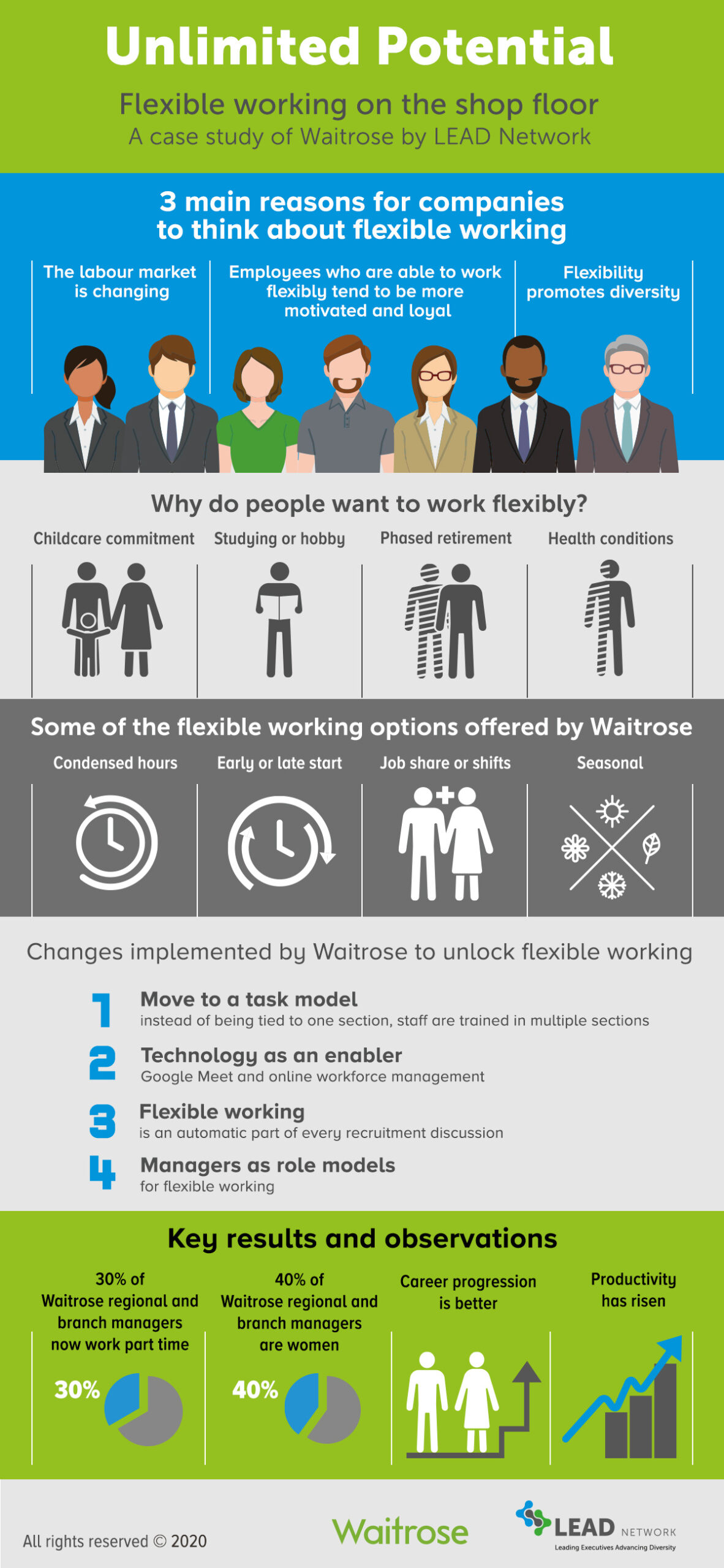Unlimited Potential
Flexible working on the shop floor
LEAD Network Retailer Study 2020
A case study of Waitrose
Welcome to LEAD Network’s study of flexible working practices at Waitrose, the UK-based, employee-owned food retailer. We commissioned this study because we felt the retail industry in Europe was crying out for practical, detailed examples of how to bring flexible working to the shop floor.
This study could not be more timely. The coronavirus pandemic has brought home just how much societies depend on food retailers being able to scale up their operations swiftly and flexibly when a crisis strikes.
Flexible working is the new normal in every developed society, and yet it’s not commonplace in our industry, other than at head office. We have to find a way to change this, and fast – both to give better chances to our existing talent, and to become more attractive to people who might not have considered a career in retail. As this study makes clear, flexible working is not a women’s issue, or an HR issue – it applies to everyone, and needs to be tackled by the operational part of the business.
The reason retail is lagging behind is that our major customer interactions happen on site: shoppers want their issues dealt with in person and on the spot. The difficulty is that, as a store manager, you can’t say ‘I will be in the store between 10 and 12, and resolve all conflicts then.’ But presence doesn’t mean one person has to be there 100% of the time; what counts is the quality of interactions a manager has with employees and customers.
So the key is to find a way to make store manager roles more flexible. That is what Waitrose is doing: moving to a concept of tasks rather than rigidly defined roles, opening up all kinds of new possibilities for more productive and responsive working patterns.
My own company, METRO, is currently running flexible working pilots in several countries. Although mobile working within our head offices is common, we haven’t yet cracked the nut of flexibility on the shop floor. I think this is an area where we could experiment more, so it is very encouraging to hear about what Waitrose is doing, and to discover there are people out there who have had a positive experience that we can learn from. By sharing such knowledge we all become stronger, and I would like to thank Waitrose for their generosity and openness in participating in this study.
I hope you will be inspired too. I urge you to get this document onto the table of operations directors within your company, and start a conversation about the practicalities of flexible working on the shop floor. Inevitably, questions and obstacles will be raised. But once these conversations begin in earnest, inspired by the example of pioneers like Waitrose, our vision of a more balanced and fair workplace will move a step closer.
Veronika Pountcheva
LEAD Network Chair
Global Director Corporate Responsibility, METRO Group
Unlimited Potential
Flexible working on the shop floor
slide deck
Please get in touch with mick.broekhof@theleadnetwork.net or allyson.zimmermann@theleadnetwork.net if you would like to receive further details, to get access to the full report or to share your feedback.






